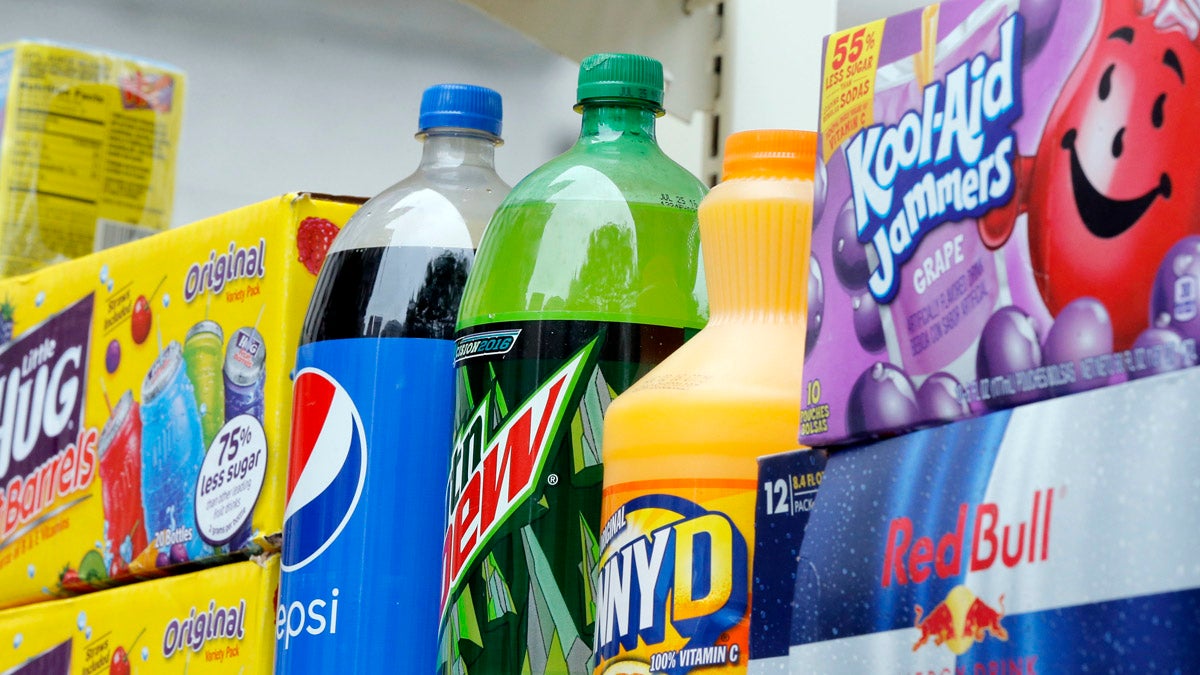How Philly’s winning soda tax strategy left out the public health angle
Listen
A delivery truck outside Independence Visitor Center on Sixth Street carries an ad against Philadelphia's proposed sugary drink tax. (Katie Colaneri/WHYY)
Philadelphia’s new soda tax, signed into law this week, is a major victory for public health advocates. Bottled Coke, Pepsi, iced tea, energy drinks and other sugary beverages will cost 1.5 cents more per ounce.
A Harvard public health study from April said Philly’s soda tax would prevent 2,300 diabetes diagnoses and save 36,000 people each year from obesity.
But, curiously, anti-obesity campaigners and their message were not front and center in this debate.
WHYY’s Katie Colaneri explained this particular public health initiative had a different motivation.
“Mayor Jim Kenney acknowledged the public health benefits of the tax, but he really focused on the community initiatives that would be funded by the revenue […] I don’t think I ever even heard the Mayor mention Philadelphia’s obesity epidemic once.”
“This was squarely about raising money for universal Pre-K, community schools and a major reinvestment in parks, recreation centers and libraries, the Mayor’s priorities.”
Philadelphia had two previous attempts at passing a soda tax. Mayor Kenney, then a City Councilman, voted down the measure. But the promise of pre-K was central to Kenney’s mayoral campaign, and a sugary drinks tax provided a way to deliver on his pledge.
Colaneri explains the Mayor also learned lessons about messaging from Berkeley, California – the first city in the U.S. to introduce a soda tax. “They have a penny per ounce tax on soda that helps pay for a popular community gardening program.”
“Kenney needed also to get this through a city council that was going to be able to go back to their districts and say “Look what I did for our kids.””
Even Diet Sodas were wrapped into the final bill. Some council members worried that a tax on regular drinks alone could be regressive. Statistics show wealthier people opt for diet drinks, while poorer consumers favor regular soda.
Although there’s still a lot of scientific debate about whether diet soda is really healthier in any case.
The beverage lobby poured millions of dollars into fighting Philly’s soda tax. Former New York City Mayor Mike Bloomberg helped bankroll the other team, having already funded the Berkeley campaign. Of course, Bloomberg lost his own soda fight in New York.
But with the Philly victory under his belt, he’s now pledging to support soda taxes elsewhere. Cities like Oakland and San Francisco in California, and Boulder in Colorado have similar measures on the ballot.
Their messaging is likely to build on Philly’s winning formula – selling soda tax as a way to fund popular progressive programs.
Philly’s own fight isn’t over yet. The beverage lobby is suing the City over the tax, saying it violates the state constitution.
Colaneri says the City may have a counter-intuitive defense. “Oddly enough, the City may fight back saying the tax is justified because of its – wait for it – public health benefit.”
WHYY is your source for fact-based, in-depth journalism and information. As a nonprofit organization, we rely on financial support from readers like you. Please give today.



